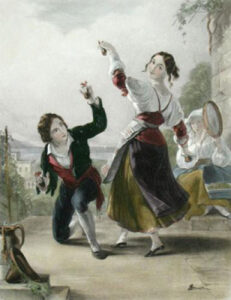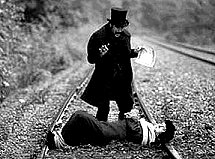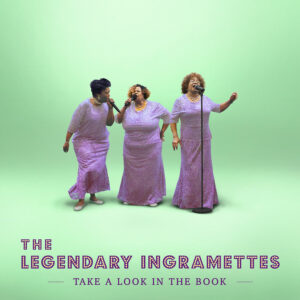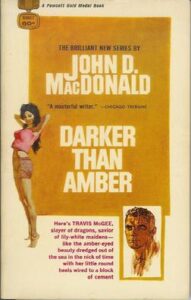Over the past 25 years, I have been involved in seven movie projects. Producers have either purchased or optioned the film rights for four my books, and I have been signed five times to write screenplays. (The math doesn’t work because I was attached to write the screenplays for two of the adaptations of my books.) Notably, none of those films have yet to make it to the screen–except for Red Dragon, for which I was screwed out of a writer’s credit. No, not bitter at all. Grrr.
The movie business is sexy, it pays well, and is the most dysfunctional business model I’ve ever encountered. It’s a miracle that any film ever gets made. But clearly they do, so I thought I’d describe the process.
The Producer.
In the movie business, the title of producer gets thrown around a lot, and frankly, the term has a lot of different meanings. For my purposes here, I’m not talking about any of the vanity titles. I’m talking about the person who actually cares about the project and breaks his backside to bring it to life.
There’s an analogy between being a producer and being an author, but it’s a weak one. I’ll give it a shot, though.
As an author, you get an idea, you develop it, write it and polish it. When it’s done, every image is traceable to your imagination. You are the producer, director, cinematographer, stunt coordinator, costume designer and set dresser, all rolled into one.
In a film, the producer recognizes a “literary property” that he thinks would make a good film. So, he starts writing checks. All those union jobs that resided in your head are positions that need to be hired to make the film. A smart producer will write those checks with other people’s money–investors who trade their cash for a “producer” credit on the film. If it makes money at the box office, the investors do well. If it tanks, the real producer still gets to keep his producer’s fee.
Film Rights.
If you’re in the writing business long enough, you’re going to be approached by someone who calls herself a producer. Nine times out of ten, the pitch will go something like, “I’ll pay you a hundred dollars for the film rights to your book. I’ll shop it around Hollywood and if we get a deal, I’ll pay you a lot of money.”
That is your cue to hang up and run like a bunny rabbit. There is exactly ZERO upside for you in that deal. It’s an indicator that the producer is inexperienced, has no real contacts, and is trying to make a killing for herself off of your intellectual property. Your response to that proposal should be, “Pay me a good sum up front for the rights to shop the book around. If you get a deal, you’ll pay me a lot MORE money.” I believe that the up-front money should be enough to serve as an incentive for the producer to actually do something with it. It should hurt them if they fail to do their job.
Purchase or Option?
There are two main ways to structure your deal: An outright purchase or an option.
In a purchase, the producer buys the film rights to your book for all time. The contract language reads, “forever and throughout the universe.” I’m not making that up. The structure of the purchase will be as above–money up front (“front-end” money) which is paid in full when the contract is signed, and “back-end” money (often a significantly larger sum) which will be paid on the first day of “principal photography”, which means filming actors. Principal photography is distinct from, say, B-roll footage. Because they own the rights outright, the producer can take as long as they want to make the movie.
In an option, the producer essentially rents the film rights for a negotiated period of time, after which the rights revert back to the author, who gets to keep the check and shop the project around to other producers. Options have front-end and back-end money, but the front-end is generally much less than the back-end because of the additional risks posed by the ticking clock.
Options can be renewed. In fact, every option deal I’ve seen has an automatic renewal built into the contract, with the renewal period generally being half that of the original option (and for additional money). After that first pro-forma renewal, as the option period is about to expire, the producer can opt to extend it for a negotiated sum, but the author is under no obligation to grant the extension.
Series Writers Beware!
Every film contract, whether by option or by outright purchase, has a sticky and scary clause that grants the producer the production rights of specified characters “forever and throughout the universe.” For an option, the character rights expire with the option–unless the film gets made, in which case the clause will lock in forever.
A good friend of mine sold the rights to the first book in what has since become a long-running series to one of the major studios. The movie was made and did . . . okay, but not well enough in the minds of the studio execs to justify another film. Since then, as the book series has gone on to blockbuster business worldwide, my friend has been offered many other movie deals, but since that first studio owns the rights to his series character, he can’t take any of the deals. To make it even worse, the original studio has no desire to make another film; they’ve just set a ridiculous price tag for other producers to buy the rights to the series character.
Front-End Money is likely the only payment you’ll ever receive. Negotiate accordingly.
Many years ago, my film agent set my head right about the movie business when he told me that for a film to make it to the screen, a million things have to go right with literally nothing going wrong. Directors and stars drop in and out of projects, producers get distracted and lose interest. The latest film in a genre similar to yours tanks at the box office. Any of these things–and a thousand others–can tank a film before it’s ever made.
When negotiating a deal, treat it as if you’re never going to see another dime after you walk away from the negotiating table.
Do nothing without getting paid.
I can’t count the number of writers I’ve met who are so thrilled that a “movie producer” wants to make a movie or TV show out of their book that they essentially give away the option rights. Producers know that authors are easy prey and they take advantage. Don’t be a victim.
The best equivalent I can think of would be convenience store owner going to Coca-Cola and Nabisco and saying, “If you stock my shelves free of charge, I’ll pay you when I sell stuff.” It doesn’t work that way. Show some respect for your own intellectual property. If producer doesn’t have at least a few thousand bucks to invest in their own business (selling intellectual properties written by others), then they’re bottom-feeders who won’t hesitate an instant to throw you under the nearest bus.
Another truth about Hollywood: Everybody lies. This was the hardest adjustment for me to make when I was working on the Warner lot for a few months. Handshakes don’t mean a thing, and everyone knows it. There’s not a single person in any studio or production office who isn’t scared to death that they will be fired tomorrow. It’s the way the system works.
If it’s not in writing, it’s not real.
Don’t sign anything without consulting an agent or entertainment lawyer.
Hollywood is built on people’s dreams, half of them crushed. All contracts I’ve seen are dictated by California law, and the lawmakers know how important the film industry is to the economy. The standard option contracts are abusive to authors, reflecting the general disdain that Tinseltown has for writers. There are terms of art that are unique to the business. If you’re not careful, getting that option check might turn out to be the worst day of your professional life.
And you know what? I’d do another deal in a heartbeat.















